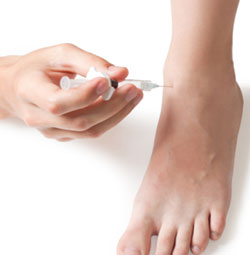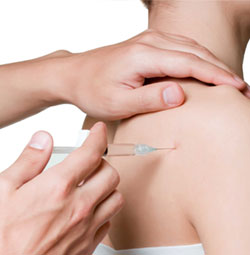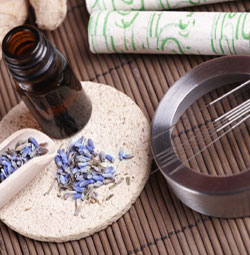Drink more water
By increasing your water consumption by as little as 1-3 glasses daily helps reduce your sugar and sodium intake.
Homeopathy is best known for its treatment of acute and chronic disease but it also has a lot to offer emergency medicine; the correct remedy acts with remarkable speed in life-threatening situations.
Payments accepted included cash, credit/debit cards and claim forms may be submitted by patients to medical aids for reimbursement
For consultation fees or for further information please contact us on 011 867-7010.
Cancellations must take place at least 24 hours in advance in order to avoid any associated charges.
Homeopathy is an alternative medical practice in which extremely dilute amounts of certain natural substances are used to treat various ailments.
Homoeopathic dispensary is the art and science of collecting, compounding, combining, preparing, preserving and standardising drugs and medicines according to the Homoeopathic principle; and also dispensing medicines or remedies according to the prescriptions of physicians, which are used in Homoeopathic practice.
Biopuncture is a therapy consisting of injecting antihomotoxic products into specific points into the body. Most of these injections are given under the skin (subcutaneous) or in muscles (intramuscular).
This emerging practice of medicine that uses an individual’s genetic profile to guide the prevention, diagnosis and treatment of disease.
If the correct remedy is taken, results can be rapid, complete and permanent.
Homoeopathic medicine can be used in babies, pregnant women and used alongside other medication without producing unwanted side effects.
Majority of homoeopathic medicines are made from substances found in nature. Homoeopathic medicines are not addictive.
Homoeopathy works quickly and effectively against colds and flu’s, earache, upset stomachs, tonsillitis, colic ect. With the remedy working within hours to give relief.
Once the emergency is handled, homoeopathy helps support the overall health. So why not use the best of both worlds?
Chronic conditions are ones where we have no end to the discomfort. Through the correct history and physical examination, homoeopathic remedies can be made to suit any condition from ADD, chronic headaches, IBS, arthritis, diabetes, chronic fatigue, hypertension, skin conditions, fibromyalgia, anxiety, depression, drug addiction, weight management ect.
Homoeopathy is effective in supporting the recovery from operations, long period of illness and helps minimise the side effects of chemotherapy and other chronic medications.
This emerging practice of medicine that uses an individual’s genetic profile to guide the prevention, diagnosis and treatment of disease.
DNA Diet utilises knowledge of the diet-gene interface to develop targeted dietary guidelines, exercise & nutritional recommendation.
DNA Health assesses genes linked to lifestyle diseases. Many of these diseases are preventable through correct diet & lifestyle choices. DNA Health is designed to help you make the best diet & lifestyle choices based on your unique DNA.
DNA Oestrogen assesses oestrogen metabolism, which is of benefit to women who suffer from oestrogen-dominant conditions such as endometriosis, premenstrual syndrome & uterine fibroid tumours, or where there is a family history of breast, uterine or ovarian cancer, or prostate cancer in men.

What is Biopuncture?
Biopuncture is a therapy consisting of injecting antihomotoxic products into specific points into the body. Most of these injections are given under the skin (subcutaneous) or in muscles (intramuscular). The therapeutic strategy in Biopuncture concerns two major keys: what to inject, and where to inject it. Both are individualized in each patient, and adapted during every session.
What products are injected?
Biotherapeutics are medical products that do not suppress the neuro-immunological responses or interfere with the physiological defence systems of the body. These remedies are injected in order to regulate natural healing, to regulate inflammatory processes that have been suppressed and to stimulate the detoxification mechanisms of the human body.

Where are the injections given?
Most of the injections are given into or just under the skin; others are given into ligaments or specific muscle points. The exact place where the practitioner injects the product is as important as the product itself. Some of these points are trigger points or acupuncture points. Injections into and around joints are also common.
How does Biopuncture work?
It stimulates the body’s healing mechanisms, speeding up the process of injury recovery and repair. It is very effective for pain relief and has shown to be comparable to a variety of conventional therapies without side effects. Biotherapeutics can also be used as a form of detoxification, whereby toxins are eliminated and therefore this helps in proper bodily functions. Biopuncture can complement chiropractic, physical as well as variety of sports injury therapies or may be used on their own, depending on the condition being treated.

Frequency and Duration of Injection Strategy
Usually the patient comes for injections on a weekly basis, and may need between five and ten sessions for healing. In acute phases, like recent inflammations, one can see the patient twice or even three times a week. Chronic patients start with weekly injections and then go down to injections once every two weeks, every four weeks and finally every six weeks. Patients on detoxification treatments are required to come for weekly to bi-weekly injections for twelve to sixteen weeks to ensure optimal organ functioning.
Which conditions are best treated with Biopuncture?
Biopuncture is mostly used for various orthopaedic and musculoskeletal problems, whether they are acute or chronic. Neck Pain, Back Pain, Sciatica, Sprained Joints, Arthritis, Frozen Shoulder, Tennis Elbow, Acute Sports Injuries & Repetitive Sports Injuries.
As Biopuncture is based on a technique of injection with a multitude of therapeutics to select from, no condition can be excluded from using this form of treatment, including: Asthma, Allergies, Sinusitis, Headaches/ Migraines, Stomach Ulcers/ Gastritis, Crohn's Disease/ Ulcerative Colitis, IBS, Non Alcoholic Fatty Liver Disease, Chronic Fatigue Syndrome, Fibromyalgia, Organ Detoxification & Lymphatic Drainage especially after reconstructive surgeries.

Homeopathic practitioner
Dr Scheepmaker completed her Bachelor’s of Science degree in Natural and Environmental Science, with the Rand Afrikaans University in 2004. After these three years of study, she went on to study further by entering into a five year full time Master’s degree in Homoeopathy, with the University of Johannesburg.
Dr Scheepmaker successfully completed her Master’s thesis on The quality of selected local and international homoeopathic mother tinctures according to thin layer chromatography in 2010, following which she was registered as a Homoeopathic Practitioner with the Allied Health Professions Council of South Africa (AHPCSA) and is a member of the Homoeopathic Association of South Africa (HSA). Dr Scheepmaker has attended and completed the International Team Physician course conducted by Dr Dallius Barkauskus (Chief physician to Lithuanian Olympic team), an advanced training course in biopuncture conducted by Dr Myron Schultz and a sports nutrition course arranged by SPN.
With the use of this focused knowledge, Dr Scheepmaker hopes to contribute to the health and wellness of all her patients through education, treatment and prevention.
Registration Details:
AHPCSA: A10939
PR No.: 0387924
CDL No.: GP02830D
HSA: 04264
By increasing your water consumption by as little as 1-3 glasses daily helps reduce your sugar and sodium intake.
Face Mapping links changes in our skin with our internal environment. There’s something intuitively healthy about clear skin. A fresh, glowing visage doesn’t just look radiantly youthful… It speaks of deeply vibrant health that is beaming to the outside world!
Your nose is stuffy, your throat is scratchy, and your head is pounding. Is it a cold or the seasonal flu? Symptoms can overlap, so unless your doctor runs a rapid flu test — a quick check done with a cotton swab from the back of your nose or throat — as soon as you start to get sick, it’s hard to know for sure. Here are some basic guidelines on how to tell the difference between cold and flu symptoms, and what to do if you have either one of these infections.